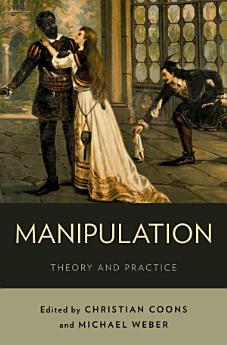Manipulation: Theory and Practice
Christian Coons · Michael Weber
Jul 2014 · Oxford University Press
2.5star
2 Rezensionenreport
E-Book
304
Seiten
family_home
Zulässig
info
reportBewertungen und Rezensionen werden nicht geprüft Weitere Informationen
Über dieses E-Book
In all groups -- from couples to nation-states -- people influence one another. Much of this influence is benign, for example giving advice to friends or serving as role models for our children and students. Some forms of influence, however, are clearly morally suspect, such as threats of violence and blackmail. A great deal of attention has been paid to one form of morally suspect influence, namely coercion. Less attention has been paid to what might be a more pervasive form of influence: manipulation. The essays in this volume address this relative imbalance by focusing on manipulation, examining its nature, moral status, and its significance in personal and social life. They address a number of central questions: What counts as manipulation? How is it distinguished from coercion and ordinary rational persuasion? Is it always wrong, or can it sometimes be justified, and if so, when? Is manipulative influence more benign than coercion? Can one manipulate unintentionally? How does being manipulated to act bear on one's moral responsibly for so acting? Given various answers to these questions, what should we think of practices such as advertising and seduction?
Bewertungen und Rezensionen
2.5
2 Rezensionen
Autoren-Profil
Christian Coons is an Associate Professor of Philosophy at Bowling Green State University. His research focuses on theory selection in normative ethics, the nature of value, and the structural relationship between normative concepts. He has published work in each of the major sub-fields of moral philosophy: applied ethics, normative ethics, axiology, metaethics, and political and legal theory. Michael Weber is Associate Professor and Chair of the Department of Philosophy, Bowling Green State University. He has published widely in ethics and political philosophy, with emphasis on contemporary egalitarianism, rational choice theory, and ethics and the emotions. His papers have appeared in journals including in Ethics, Ethical Theory and Moral Practice, The Canadian Philosophical Review, Philosophical Studies, The International Encyclopedia of Ethics, The Journal of Ethics and Social Policy, The Journal of Ethics, and Public Affairs Quarterly. He is also co-editor (with Christian Coons) of Paternalism: Theory and Practice (Cambridge University Press, 2013). He previously taught at Yale University, having earned a Ph.d in philosophy at the University of Michigan, a B. A. in Philosophy, Politics and Economics at Oxford, and a B. A. from Williams College.
Dieses E-Book bewerten
Deine Meinung ist gefragt!
Informationen zum Lesen
Smartphones und Tablets
Nachdem du die Google Play Bücher App für Android und iPad/iPhone installiert hast, wird diese automatisch mit deinem Konto synchronisiert, sodass du auch unterwegs online und offline lesen kannst.
Laptops und Computer
Im Webbrowser auf deinem Computer kannst du dir Hörbucher anhören, die du bei Google Play gekauft hast.
E-Reader und andere Geräte
Wenn du Bücher auf E-Ink-Geräten lesen möchtest, beispielsweise auf einem Kobo eReader, lade eine Datei herunter und übertrage sie auf dein Gerät. Eine ausführliche Anleitung zum Übertragen der Dateien auf unterstützte E-Reader findest du in der Hilfe.





